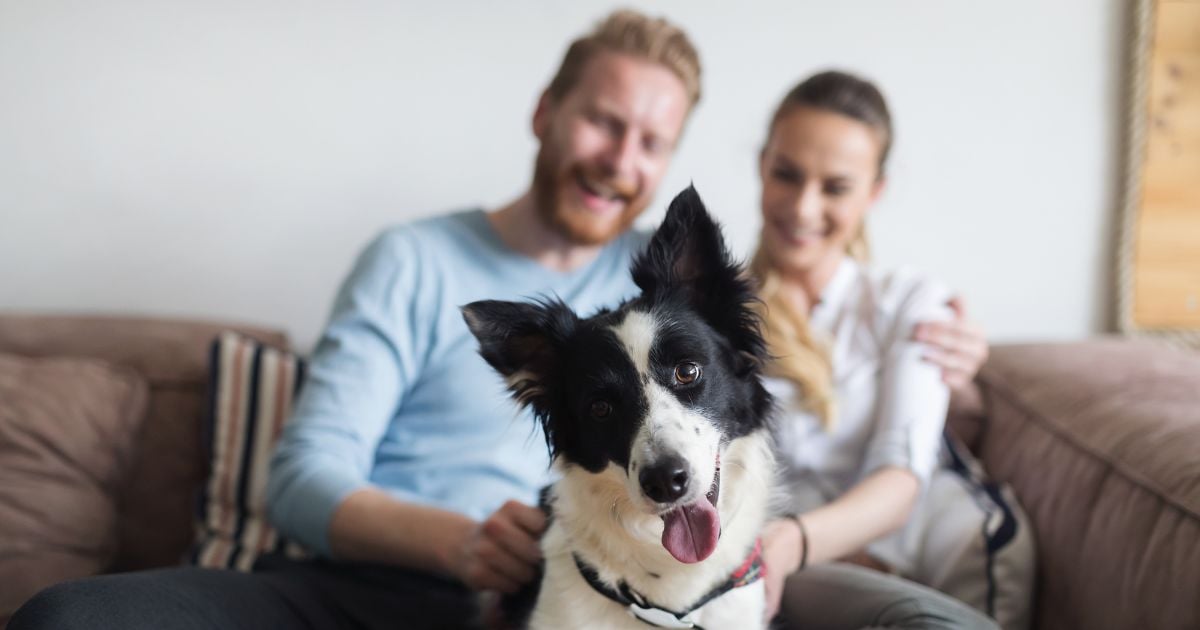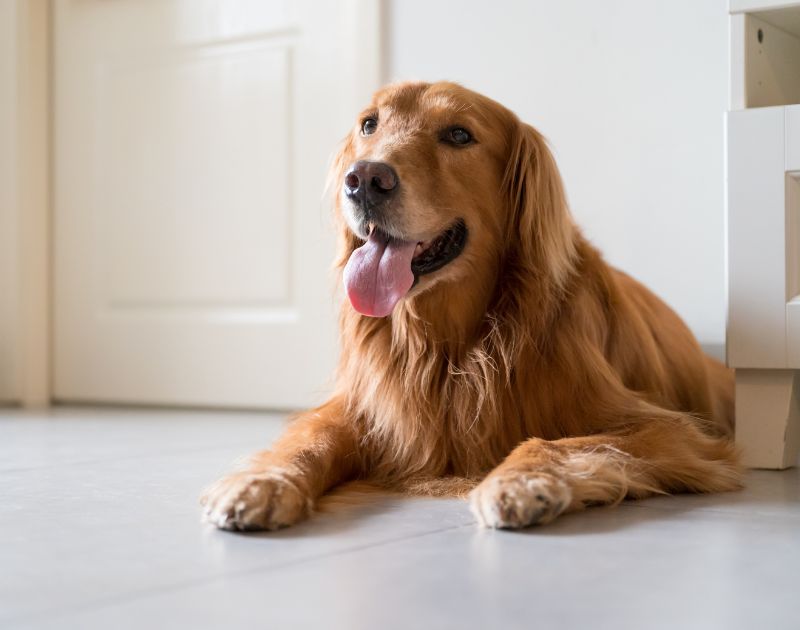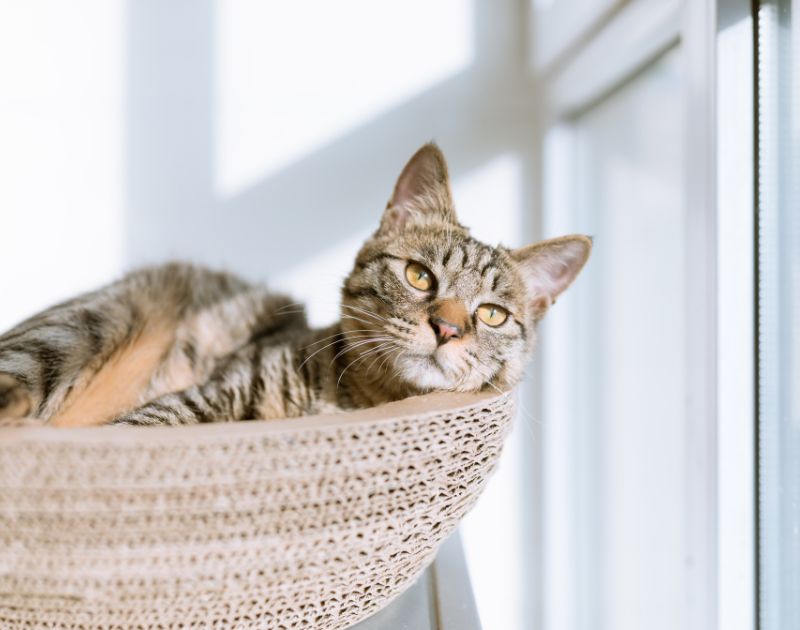 Bella, Oliver, Oreo, Max… When deciding if you want a pet, you might be tempted to spend more time debating a name than considering the annual expenses of pet ownership. Being a pet parent can be pricey. It’s important to ask yourself, “Can I afford a pet?” before you adopt a new furry friend. Read on to learn more about how much it costs to own a pet.
Bella, Oliver, Oreo, Max… When deciding if you want a pet, you might be tempted to spend more time debating a name than considering the annual expenses of pet ownership. Being a pet parent can be pricey. It’s important to ask yourself, “Can I afford a pet?” before you adopt a new furry friend. Read on to learn more about how much it costs to own a pet.
What are the costs of owning a pet?
Owning a pet is a serious financial commitment. Purchasing a new sweatshirt or an energy drink is classified as an impulse buy, but purchasing an animal is not. Before you become a pet parent, you’ll need to make room in your budget for first-year costs and recurring expenses. You’ll also need to be financially prepared for unexpected expenses regarding your four-legged companion. In addition to financial costs, your pet will require time and attention.
How much does it cost to own a dog?
On average, dog owners spend $40 to $290 per month on pet-related expenses. This cost will vary depending on the size of your dog, the general health and well-being, and your preferred brands. By budgeting ahead of time, you can increase your confidence in being a suitable dog mom or dad.
1. Upfront costs
When adopting a dog, the cost can vary based on location and breed. Adoption fees can be as low as $50 from a shelter or rescue. However, if you purchase your animal from a breeder, there’s a good chance the price will be well over $500. There will be additional costs if you have to travel to retrieve your pet.
When you first bring home your pup, you will have to purchase essential supplies. A collar, harness, leash, bed, food bowls, and a kennel are just a few of the upfront expenses. In the first year, you’ll also need to pay for vaccinations, spaying or neutering, and behavior training.
2. Food and treats
The cost of your dog’s food will depend on the size and dietary needs of your animal. You’ll also want to consider the difference in the quality of various brands of kibble. High-quality dog food is more expensive, but is generally better for your pets health. This could potentially help you save on medical costs in the future. In total, you can expect to pay around $600 on dog food each year.
You’ll also want to make room in your budget for treats. However, you can save on treat costs by making your own. Additionally, certain pet owners opt to order their pet food and treats through a home delivery service, which can cost a bit more.
3. Medical expenses
Every year, your pet will need routine check ups. In 2023, the average cost for veterinary care is $50 to $250 each visit. Preventatives, like flea and tick protection or heartworm medications, can increase the monthly cost. Required vaccinations are another expense to watch out for.
As pets age, unexpected health issues may arise. For example, if your dog develops diabetes, insulin alone could cost $2,400 per year. Pet insurance can help greatly if you have a dog with poor health. The average pet insurance policy cost for dogs is $53 monthly. Having coverage can save you money in the long-run if an accident occurs.
4. Pooch pampering
Your pet’s grooming needs will depend on the type of coat it has. Long-haired dogs may need professional grooming multiple times per year, and cost you roughly $30 to $90 for each visit. However, you can save money on pampering your pup by purchasing simple grooming supplies like a brush and shampoo.
To keep your dog active and content, you’ll need to provide toys. Chew toys, squeaky toys, and toys involving your involvement, like a tug rope or tennis ball, are common playthings. The price depends on the frequency of purchase and on the quality of the toy.
5. Dog boarding and walking
Owning a pet gives you less flexibility to travel. You will have to arrange to leave your dog with a pet sitter or local kennel before a trip. This optional expense depends on how much you travel and how much supervision your pet needs.
Additionally, you’ll need to spend time walking your dog, as canines require exercise to remain healthy. You’ll want to purchase waste disposal bags for picking up after your pooch on walks. If you don’t have time for walks, you may need to hire a dog walker.
How much does it cost to own a cat?
Cats are generally more affordable than dogs, so the monthly costs of pet expenses are significantly lower. This is because of their size and lifestyle habits. While it depends on the age and health of your feline friend, the average monthly cost of having a cat is $27 to $133.
1. Upfront costs
When adopting a cat, the cost can depend on location, breed, and age of animal. Standard adoption fees can be as low as $39. If you purchase your animal from a breeder, however, the cost of a cat could be several hundred dollars.
In the first year, you will have to budget for essential supplies. These initial supplies include a litter box, collar, bed, food bowls, scratching post, and a carrying crate. There are also the costs of first-year vaccinations and spaying or neutering.
2. Food and Treats
There is a variety of food options you can choose for your cat. It’s common to feed your cat dry kibble, wet food, or a combination of the two. Depending on your preferred cat food brands, you could be looking at an annual cost of $720.
Treats are an added expense, especially the calming or dental-friendly versions. However, you can save on treat costs by making your own. Keep in mind that if you decide to purchase a pet food subscription online, it could be even more costly than buying your cat food and treats from the store.
3. Medical expenses
The average cost for a veterinary visit is $61, but you’ll need to budget extra for any required annual vaccinations. Although the medical expenses listed are predictable, there are often medical costs that are unexpected. If your cat was too curious and ingested a foreign object, surgery could be a hefty expense.
Purchasing pet insurance can help greatly if you have an accident-prone cat. The average pet insurance policy cost for cats is $32. Although the monthly premiums may seem like a large amount, having coverage can save you money on emergency vet bills.
4. Litter and maintenance
The amount of litter you use each month depends on how healthy your cat is. The type of litter, such as clumping or non-clumping formulas, can also be a factor in cost. However, expect to pay more if you try the color-changing crystal litter that helps you track your cat’s health. On average, a pet owner spends roughly $25 to $30 in cat litter costs monthly.
Cats don’t require as much maintenance as dogs. In fact, they tend to groom themselves. However, you have to keep an eye on the litter box. Make sure you budget for a litter scoop, cleaning supplies, and deodorizers for your cat’s litter box.
5. Toys and travel
Toys can enrich your cat’s life and can help give your cat the stimulation they need on a daily basis. A cat tree, scratching post, or another interactive toy, like a laser pointer or feather wand, can help your cat stay engaged and exercised. You can always opt for a leash and harness if your cat prefers to go on walks.
With a pet, you’ll have less flexibility to take spontaneous trips. If you plan to travel, a family member, friend, or pet sitter must be arranged prior to the trip. This optional expense depends on how much you travel and how much supervision your pet needs.
Pets can be great companions, roommates, and best friends. However, you should make sure you’re ready for the time and financial commitment that a cat or dog will require. Remember, picking the perfect name is important, but being able to afford the cost of pet ownership is more important yet.
WHAT'S NEXT?🐶A credit card can help with pet expenses and more. Read 9 Expenses Your First Credit Card Can Help You With in College. 🐱If you have a pet but struggle to keep up with the expenses, create a budget to help. Check out How to Create a Budget to stay on top of your finances. |
















